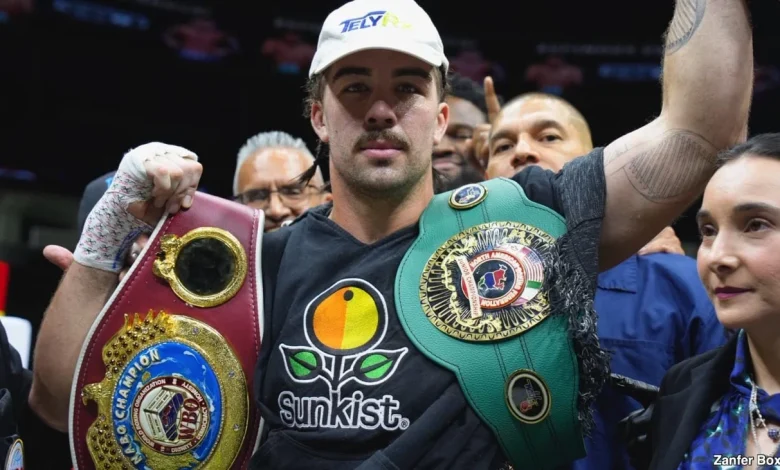Torrez stops Salek – Is Richard Torrez, Jr. A Top US Heavyweight?

The 2021 Olympic Silver Medalist Richard Torrez, Jr., is currently unbeaten at 14-0 with 12 stoppages from Tulane, California, also a southpaw. He was 52-8 in the amateurs.
The IBO has him ranked No. 19 behind 3 other US heavyweights. One of them is Uzbekistan-born, now out of Indio, California, 2021 Olympic Gold Medalist Bakhodir ‘The Big Uzbek’ Jololov, 16-0 with 14 stoppages, who defeated Torrez in the Olympic finals. He is a southpaw who was 109-15 as an amateur, 88-15 when he met Torrez.
Jololov is 9-0 in the US and has fought in Mexico, Tashkent twice, Dubai twice, Astana, and Russia in his last fight in October. He last fought 4 fights ago in 2023.
The other is Jared ‘The Real Big Baby’ Anderson, 18-1 with 15 stoppages, ranked No. 16 by the IBO. He is out of Houston, Texas. He won the WBC USA and WBO International titles in 2024, defeating Ryad Merhy, 32-2. In his next bout, he was stopped by NABF champ Martin Bakole, 20-1, who took his WBO title.
The third is Michael ‘The Bounty’ Hunter, Jr., 24-1-2 with 17 stoppages from Las Vegas, Nevada. 53-12 in the amateurs, a 2012 Olympic American qualifier. He had a loss to the current world champion, Oleksandr Usyk, in 2017 for the world cruiser title.
He has two split-decision draws with Jerry Forrest and Alexander Povetkin.
On Saturday, Torrez stopped Tomas Salek, 23-7 out of CZ over ESPN Knockout, in Mexico in the first round.
Torrez won the NABF Junior title, stopping Brandon Moore, 14-0, in 2024. He added the NABF title, stopping Mexico’s Issac Munoz Gutierrez, 18-1-1, in 2024. In his lone 2025 fight in April, he won a lopsided decision over Italy’s Guido Vianello, 13-2-1, for the vacant IBF North American, WBO NABO, and NABF titles. Vianello, in his next fight, won the WBC Continental Americas title.
Ken Hissner is a seasoned boxing journalist with over 20 years of experience covering the global fight scene. As a senior writer for Boxing News 24, he is well known in the boxing community for his detailed results coverage, in-depth historical pieces, and ringside reports from major events.
Boxing News 24 » – Boxing Results » Torrez stops Salek – Is Richard Torrez, Jr. A Top US Heavyweight?
Last Updated on 11/16/2025




